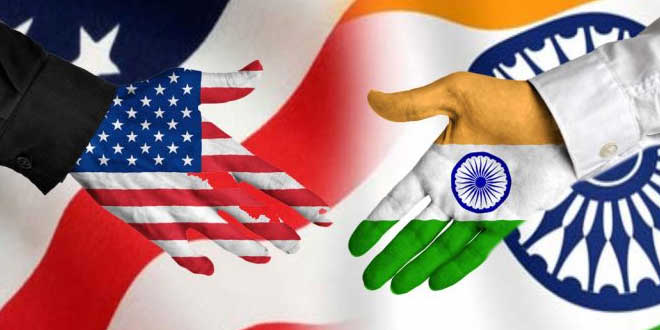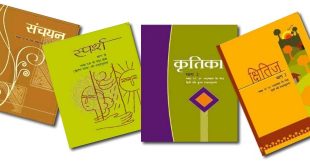Question: ‘Rapid improvement in technology has been one major factor that has stimulated the globalisation process.’ Explain.
Answer:
- In the last 50 years, the world has witnessed a major improvement in transportation technology. Due to this goods can be transported throughout the world in a short period of time, and at a lower cost.
- Development in telecommunications, computers, internet etc. has given a big boost to the process of globalization. Because of the modern facilities, it is very easy to access information instantly, and to communicate from remote areas. Through the use of internet, one can communicate across the world at negligible costs.
- Use of IT helps transferring of data and other information.
- Use of It has helped the MNCs to expand their market throughout the world.
- A host of services such as data entry, accounting, administrative tasks, engineering are now being done cheaply in countries.
- To link the market.
- To set up customer care centres.
Question: What is liberalization? What steps were taken by the government to liberate the Indian economy?
Answer: “Liberalization of the economy means to free it from direct or physical controls imposed by the government. ” Prior to 1991, the government of India had imposed many restrictions on the Indian economy like industrial licensing system, price control, import license, etc. All these restrictions were hampering the growth of lift all the unwanted restrictions. For this, the following steps were taken:
- All industries except three industries were exempted from any kind of industrial licensing.
- Under the policy of liberalization, industries are free to expand and produce according to the need of the market.
- Now producers are free to import the machinery and raw material from abroad.
- Now the industry is also free to import modern technology from other countries.
Question: What is WTO? Mention its major aims. Mention its limitations.
Answer: The WTO or the Wold Trade Organisation is an organisation which deals with the rules of trade among the nationals.
Aims of the WTO
- The major aim of the WTO is to conduct the international trade among countries of the world in an open, uniform and non-discriminatory manner.
- The WTO or the World Trade Organisation also handles trade disputes.
- The World Trade Organisation provides technical assistance and training to the developed and the underdeveloped economies.
- It forms rules and regulations which all the members have to adopt for the smooth running of trade.
Limitation: Developed countries have unfairly retained trade barriers whereas WTO rules have forced the developing countries to remove trade barriers.
Question: What change have occurred in India due to the adaptation of the policy of liberalization and globalization?
Answer:
- Variety of products: Due to the New Economic Policy, many MNCs have invested their capital in India. So the Indian consumers are getting variety and quality products at cheaper rates.
- Development in the infrastructure: Due to the policy of globalisation and privatisation, the condition of infrastructure has improved considerably. Much progress can be seen in the communication sector. At present many private companies are providing better services to the consumers.
- Boost to Foreign direct investment: The policy of liberalisation and globalisation has provided a big boost to foreign direct investment in developing countries.
- Boost to the Indian Companies: Due to the policy of globalisation and liberalisation, the private sector has gained a big push. Now the private sector is free to import raw material and technology from other countries. Many restrictions on the imports and exports have been able to benefit from the increased competition. Moreover, globalisation has enabled some large Indian companies to emerge as multinationals themselves. Tata Motors (automobiles), Infosys (IT), etc.
- Boost to the service sector: Globalisation has also created new opportunities for companies providing services, particularly those involving information and communication technologies. Besides, a host of services such as data entry, accounting, administrative tasks, engineering, etc. are now being cheaply done in our country, and are exported to the developed countries.
Question: What role can the government play in making the globalisation a success?
Answer:
- Government should prepare such policies that must protect the interest, not only of the rich and the powerful, but of all the people in the country.
- Government can ensure that labour laws are properly implemented and the workers get their rights.
- Government can reserve some items exclusively for the small-scale and local producers.
- If necessary, the government barriers like quota system, imports, duties, etc.
- It can negotiate with the WTO for fairer rules.
- It can align with other developing countries with similar interests to fight against the domination of developed countries in the WTO.
Question: Explain the impact of globalization and MNCs on workers.
Answer:
- Globalization and the pressure of competition have substantially changed the lives of workers. Faced with growing competition, most employers these days prefer to employ workers ‘flexibly’. This means that wirkers jobs are no longer secure.
- Because of globalization and MNCs, only skilled and educated workers have on a permanent basis, now MNCs employ workers’ only on temporary basis.
- Workers have to put in very long working hours and work night shift on a regular basis during the peak season.
- While this competition among the garment exporters has allowed the MNCs to make large profits, workers are denied their fair share of benefits brought about by globalization.
- Moreover, conditions of work in the organised sector have come to resemble the unorganized sector. Workers in the organised sector no longer get the protection and benefits that they enjoyed earlier.
 Class Notes NCERT Solutions for CBSE Students
Class Notes NCERT Solutions for CBSE Students





